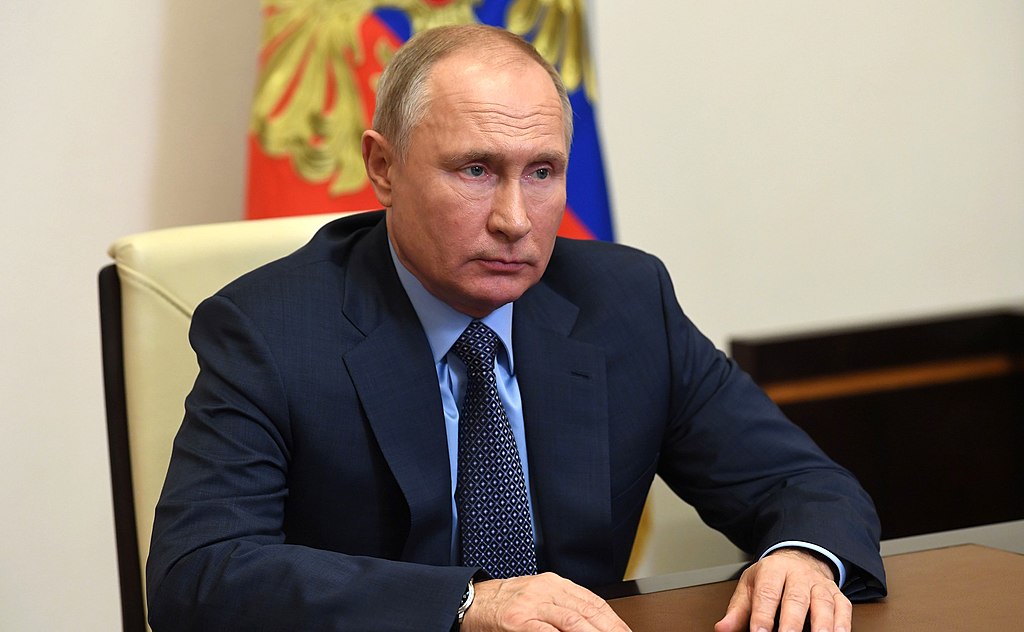Wagner Group leader Yevgeny Prigozhin's supposed failed coup against Russia's Ministry of Defense appeared so amateur there is almost no way it was not staged. As he and his men approached Moscow, Prigozhin suddenly turned back, announcing he did not want to shed Russian blood. But this is a faulty excuse since this is something he would have clearly thought about beforehand. According to reports in the UK, Russian intelligence services issued threats to harm the families of Wagner leaders, which ultimately led to Prigozhin calling off his advance on Moscow. Additionally, it has been evaluated that the mercenary force consisted of only 8,000 fighters, contrary to the previously claimed 25,000, and would have faced probable defeat if they attempted to capture the Russian capital.
Russian President Vladimir Putin is supposedly in danger of being replaced and numerous media outlets have been spending the last few days proclaiming Putin's imminent downfall. But is this truly the case? What if Putin conspired together with Prigozhin to mount a weak coup in order to scare Chief of the Russian general staff Valery Gerasimov and Defence Minister Sergei Shoigu into action? Is it plausible that perhaps Putin needed an easy way to strengthen his hand? Another possibility is that Prigozhin himself needed a way out of Russia and this was his deal with Putin - hence the pretend coup. There remains speculation about what formal deal was struck, if any. The Kremlin said on Saturday that Prigozhin would head to Belarus in exchange for a pardon from charges of treason.
But let us assume the commentators and media are correct and Putin's downfall is indeed looming. Supposedly, the erosion of Russia's prestige has reached a point where even pro-war commentators on Russian state television and social media acknowledge that the coup has cast doubt on the entire war.
NATO's chief, Jens Stoltenberg, declared that the brief mutiny by Wagner mercenaries serves as evidence of the Russian regime's vulnerability and highlights the significant strategic blunder made by Vladimir Putin in his invasion of Ukraine. During a visit to Lithuania, Stoltenberg addressed reporters, emphasizing that the recent events are internal matters concerning Russia. He described them as yet another manifestation of President Putin's grave strategic error in the illegal annexation of Crimea and the ongoing conflict in Ukraine. Stoltenberg noted that the mutiny exposed the weakness and fragility of the Russian regime. However, he emphasized that NATO does not have a role in intervening in these issues, as they fall within the purview of Russian affairs.
As a result of this odd coup attempt, Putin apparently intends to integrate Wagner Group soldiers into the Russian military and eliminate their former leaders. Russian MP Andrey Gurulyov, a prominent Kremlin propagandist, said there was "no option" but for Prigozhin and another high-profile Wagner figure to be executed.
In his first public statement since the dramatic mutiny orchestrated by Wagner mercenaries, which was ultimately called off just moments before their march on Moscow, Putin addressed the most significant threat his regime has ever faced.
Curiously, the statement, which coincided with Prigozhin's private army taking control of Russia's military headquarters in Rostov-on-Don, lacked any direct mention of the armed rebellion. Instead, Putin focused on a seemingly unrelated topic, commending the opening of an international engineering forum.
Notably, the forum took place in Tula, a city in close proximity to where Wagner mercenaries were reported to have advanced towards Moscow in the preceding days.
Earlier on Monday, Shoigu made a public appearance, visiting troops in a show of solidarity. This was his first public outing since Prigozhin's demand to hand over Shoigu and Gerasimov, whom the Wagner leader accused of gross incompetence and corruption, in order to "restore justice."
According to The Spectator, the attempted coup has dealt a significant blow to both Putin and Wagner. Prigozhin has chosen to go into exile, while the group itself is expected to lose its privileged status. This turn of events has led to a remarkable humiliation for Putin, a precarious situation for an autocratic leader.
Firstly, Putin's renowned security forces proved entirely ineffectual during the mutiny, leaving him vulnerable and exposed. Secondly, the Wagner forces, whom he branded as "traitors" and vowed to harshly punish, will evade any consequences for their actions. To put an end to the coup, Putin had to make significant concessions, although the exact nature of these concessions remains unclear at present. What is evident, however, is that he failed to crush the most serious challenge to his authority in the span of 23 years.
Because Putin relies on loyalty over ability, he has allowed Shoigu and Gerasimov to remain in their positions - as incompetent as they may be. Prigozhin may be correct that the two men have no place in the defense ministry and he may not be wrong that they should be replaced, but that would only be if these were normal circumstances in a normal democratic country.
Given his inability to alter the trajectory of unfolding events, Putin found himself compelled to come to an agreement with Prigozhin, despite his earlier vow to exact punishment upon the Wagner Group, as expressed in his video address. Furthermore, Putin cannot depend on widespread popular support. In Rostov, residents warmly received Prigozhin's group of insurgents while expressing disdain towards the retreating police forces, a development that must be disconcerting for Putin. And Putin realizes now that even staunch loyalist politicians within Russia did not hastily rush to his defense following his address, signaling a potentially ominous shift in support.
There are many red flags here that suggest the events we witnessed do not tell the whole story. Nonetheless, it is plausible to say that Putin is indeed in plenty of trouble and his downfall is likely to occur sooner than we think.





